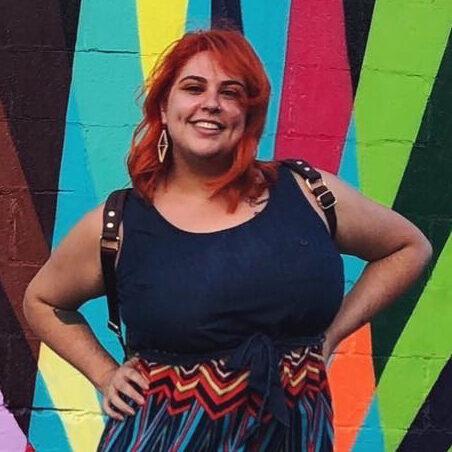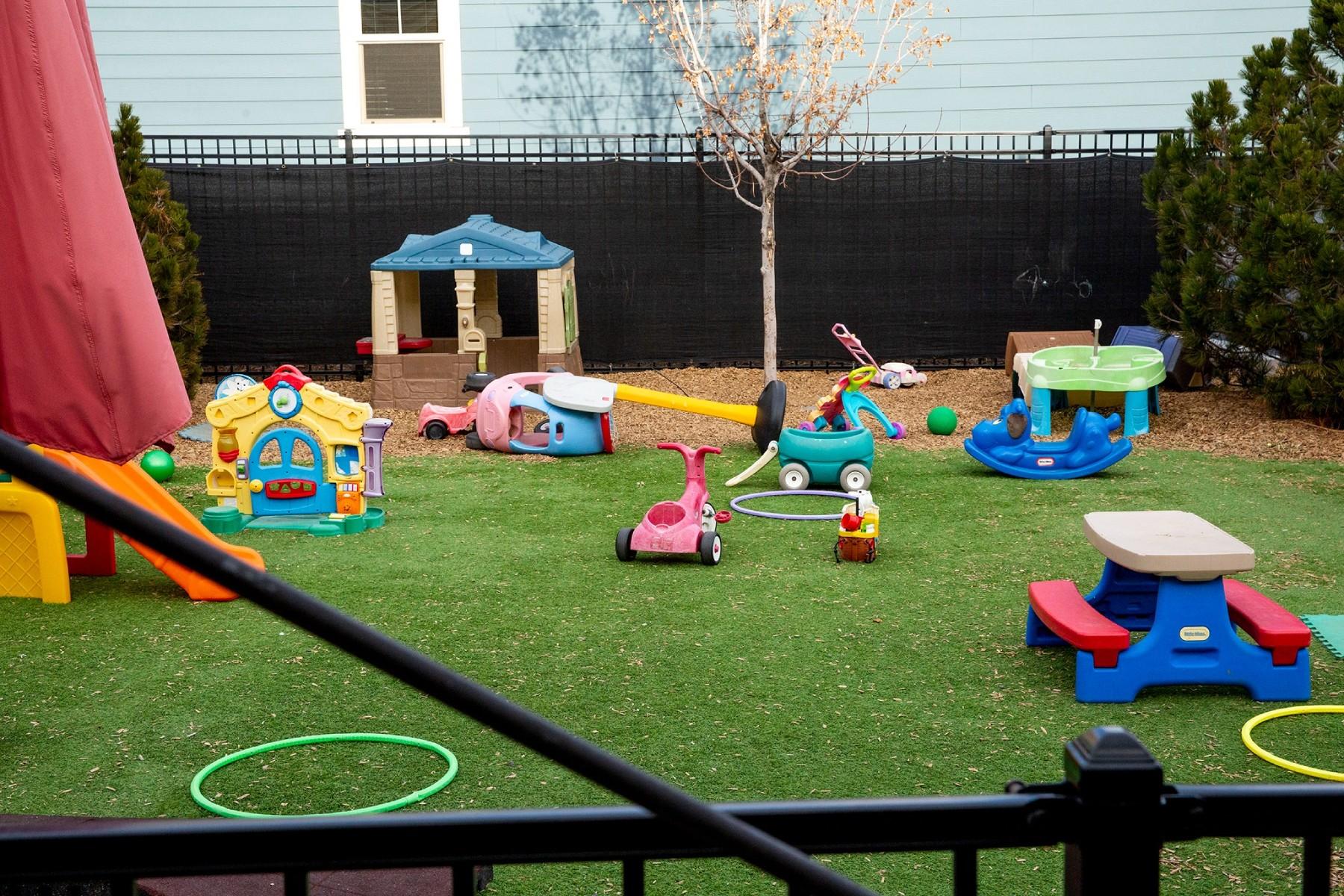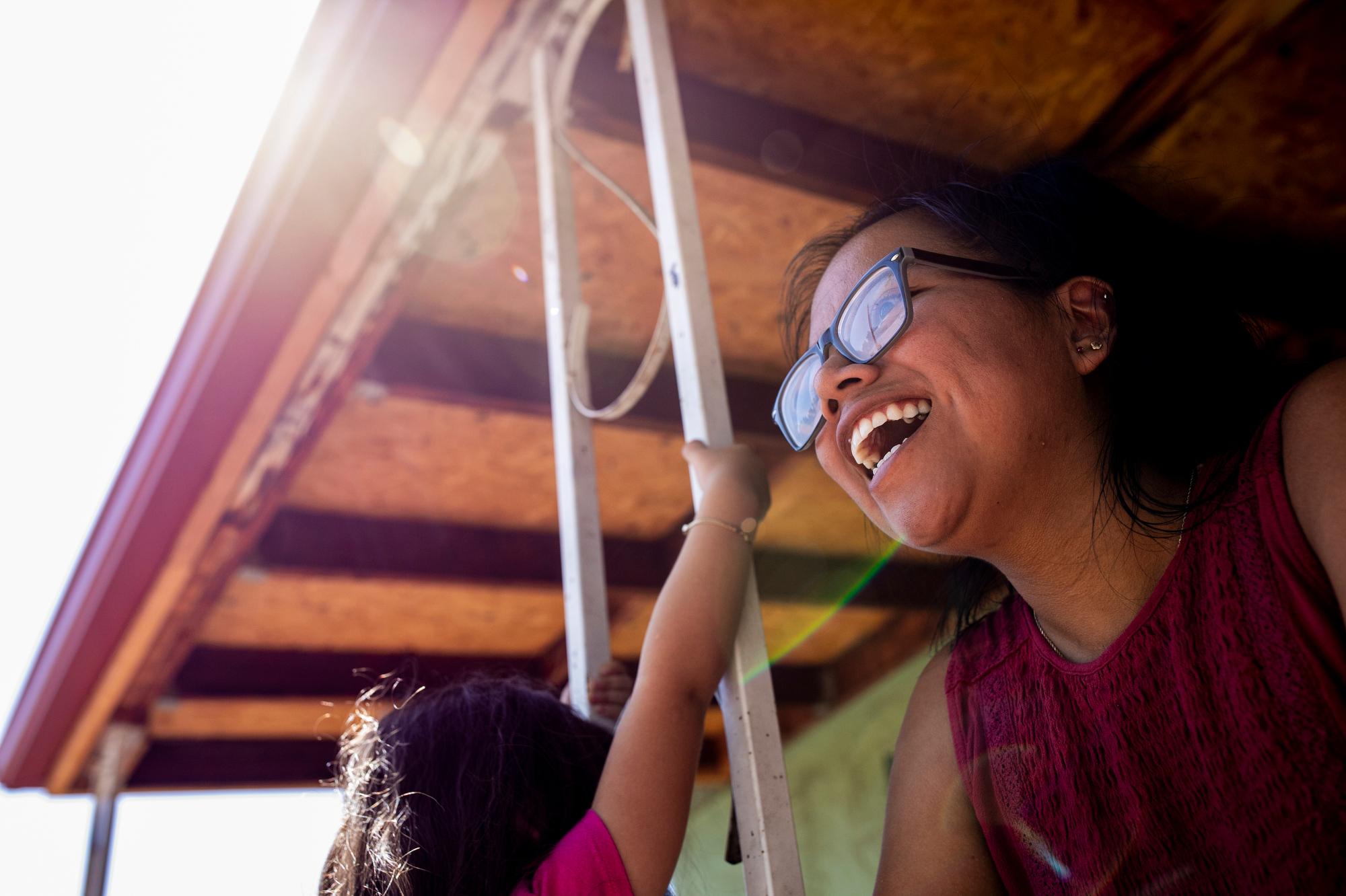
It’s a sunny Saturday morning in a Pueblo neighborhood, and the scent of steak and eggs drifts through the air in Ana Agustin’s home. She’s making breakfast for her cousins.
The women are keeping up their weekly tradition of hanging out on weekends and basking in each other’s friendship. Agustin said she needs it with the year she’s been having.
“I just take it one day at a time because if I stress, that’s when my mental health starts going like, ugh. I start overthinking about it,” Agustin said.
The coronavirus pandemic has been stressful for all Coloradans. And undocumented immigrants in Colorado are facing some unique stressors themselves as they deal with the pandemic — severely limited access to health care, looming deportation concerns for them or their families, and the particular difficulty of getting mental health help
Agustin hasn’t been spared from any of that.
2020 didn’t start off perfectly for her, but there have been some bright spots. Agustin loves helping people through her job at a community health clinic in Pueblo; she said it makes her feel fulfilled. She has a seven-year-old son who she loves endlessly. On top of that, she and her boyfriend bought their own house in January.
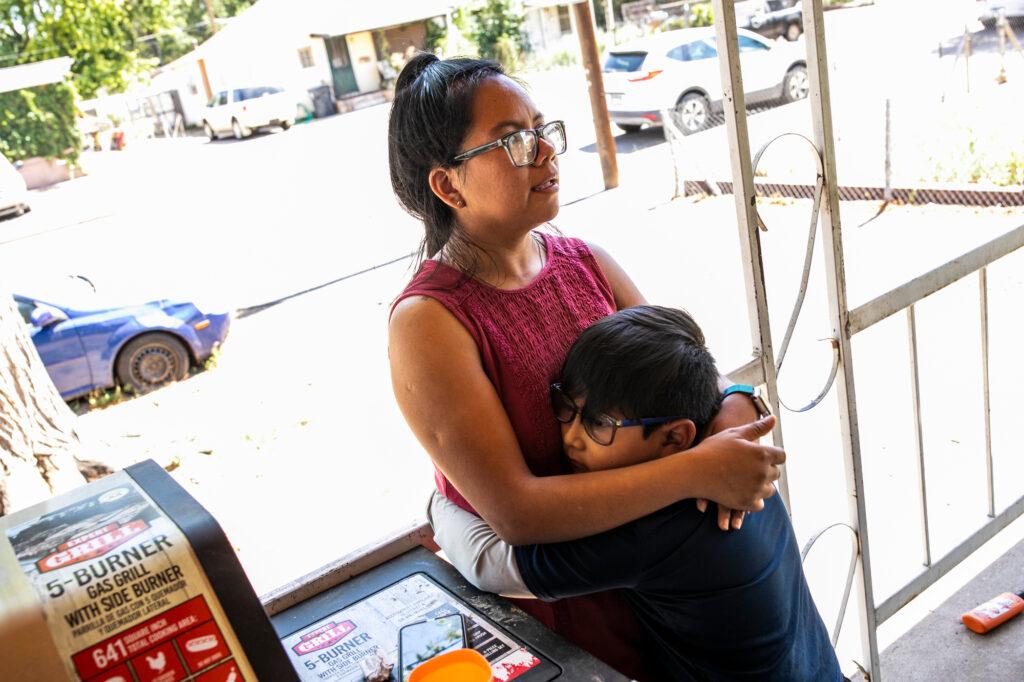
Coronavirus hit Agustin — and other immigrants and Latinos — disproportionately hard.
Then came coronavirus.
She had to take three months off work because she has thyroid cancer. And that diagnosis puts her at high risk of severe illness if she catches COVID-19. She said she has honest conversations with her son about her health.
“‘Baby, I don’t know if I’m going to wake up tomorrow,’” she said she has told her son. “And I tell him all the time, ‘I don’t say it to hurt you. I say it because I love you and you have to be independent, you have to keep pushing, pushing, pushing.’”
Agustin went back to work in July after her cancer diagnosis forced her to stay away from work for three months. But Agustin is under other kinds of stress — partly stemming from her citizenship status. Her parents brought her and her brothers to Colorado illegally from Mexico when she was a little girl. Right now she’s protected from deportation through the Deferred Action for Childhood Arrivals Act. But the program’s future has been up in the air for years, and that’s taken a toll on her entire family.
“We’re doing everything and this literally can be taken from us any day,” the 28-year-old said. “My brothers, I’ve seen them cry. It’s not guaranteed we’ll get the renewal. All we can do is pay for it and try to get it.”
That uncertainty, coupled with her cancer, has definitely taken a toll on her mental health. And she’s trying her best to handle it all, telling herself to take things day by day, surrounding herself with friends. But those things can only do so much.
“We’re all human. I do the same job — the same or even better than everybody else,” Agustin said as she broke down in tears. “I have my own stuff. I’m working my ass off. Everything I’ve ever dreamed of, I do my best to work for it.”
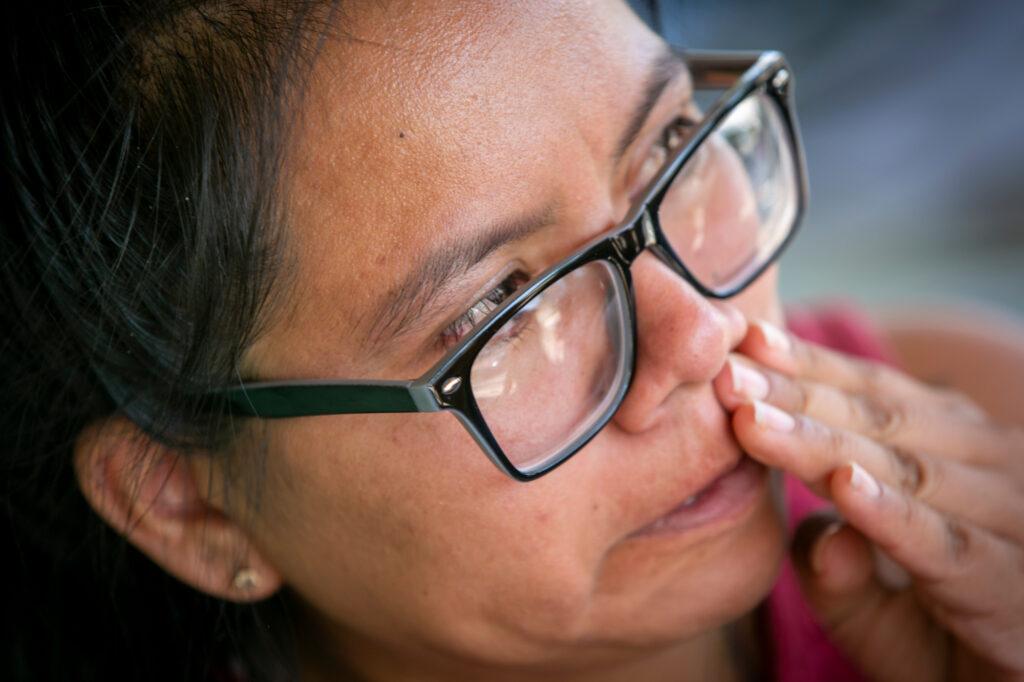
Alfonso Cappa is a clinical psychologist who sees a lot of Latinos and immigrants all around the state. He said his patients have been having more issues with things like anxiety, panic attacks and PTSD lately.
“There’s a lot going on that they don’t feel they can control given the circumstances. Before the pandemic, it was getting worse,” Cappa said. “Things have changed, not necessarily for the better.”
Cappa said people who are undocumented have many concerns as it is — fear of calling the police if they need help; having chronic medical problems but no health insurance, and, like Agustin, not knowing if their futures will be spent in the U.S., or somewhere else. And Cappa said documented residents might not have to deal with the same problems.
“There’s definitely a financial struggle. Unlike us, they don’t have their buffer. Like, ‘Oh, we have some savings. The government will help us or we can reach out to other family members close by that will support us.’ That luxury we have to get all those resources, they don’t have that.”
COVID-19 has hit Latinos disproportionately hard — harder than any other racial group in Colorado.
They account for just over 20 percent of the state’s population but are nearly 40 percent of COVID-19 cases. In Denver, Latinos have significantly higher rates of COVID-related hospitalizations.
There’s also the fact that some undocumented people are more likely to be essential workers, from doctors and nurses to farmworkers and grocery store employees. Those people are at higher risk of exposure. And if they need help, be it physically or mentally, they might forgo it because of their legal status.
Though Cappa said they might also hesitate to address their mental health issues because of how it would make them look.
“It’s still a pretty significant stigma how we look at it, like only the quote-unquote ‘crazy’ go to see a psychologist or a psychiatrist,” he said.
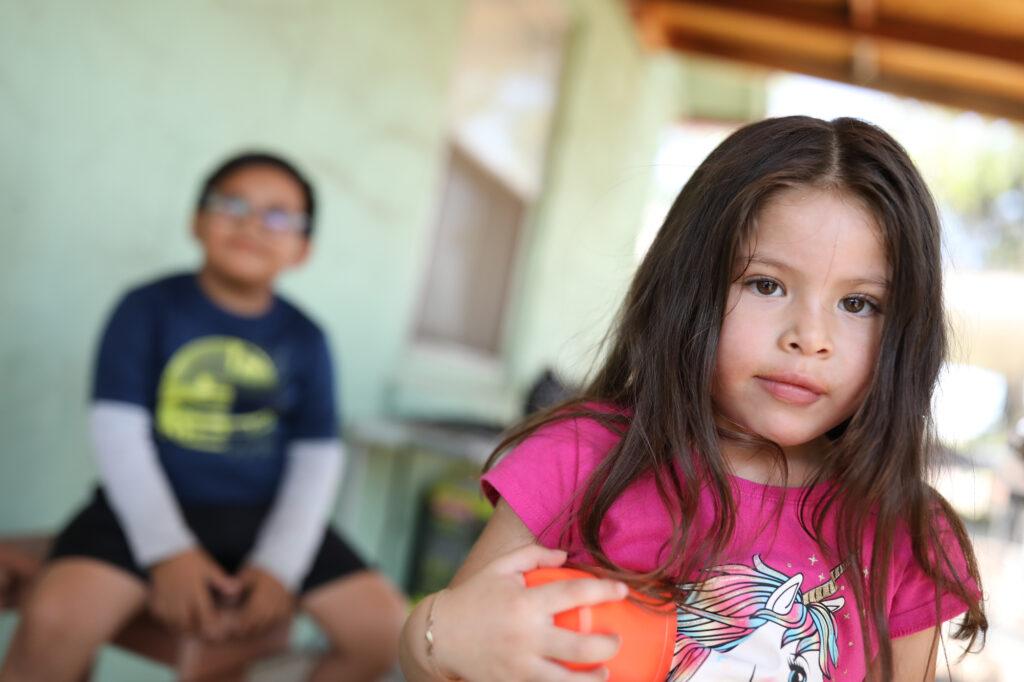
What COVID-19 resources are available for undocumented immigrants?
So, what’s being done to help undocumented immigrants deal with all this? It depends where you look.
In Washington, D.C., lawmakers have been in talks for months on the next coronavirus stimulus package. A U.S. House-passed version would likely help undocumented people cope with the crisis, shielding some of them from deportation and helping them financially.
But President Donald Trump recently said he won’t negotiate on a new coronavirus relief package until after the presidential election.
Meanwhile in Colorado, the state offers rental assistance and emergency Medicaid to everyone, regardless of their citizenship status. That includes emergency testing and treatment for COVID-19. But, assistance with mental health problems isn’t quite as robust. The state however does offer a free crisis line for anyone who needs it.
Then there’s the city level. In Denver, Councilwoman Robin Kneich is working to strengthen a relief fund for people who need help, but may not qualify for federal assistance.
“They’re using it to pay for their housing, it’s going to purchase food, it’s going to purchase the emergency needs that they have,” Kneich said. “It’s also helping to pay bills. Sometimes medical bills, sometimes the cellphone bill which is a lifeline for people.”
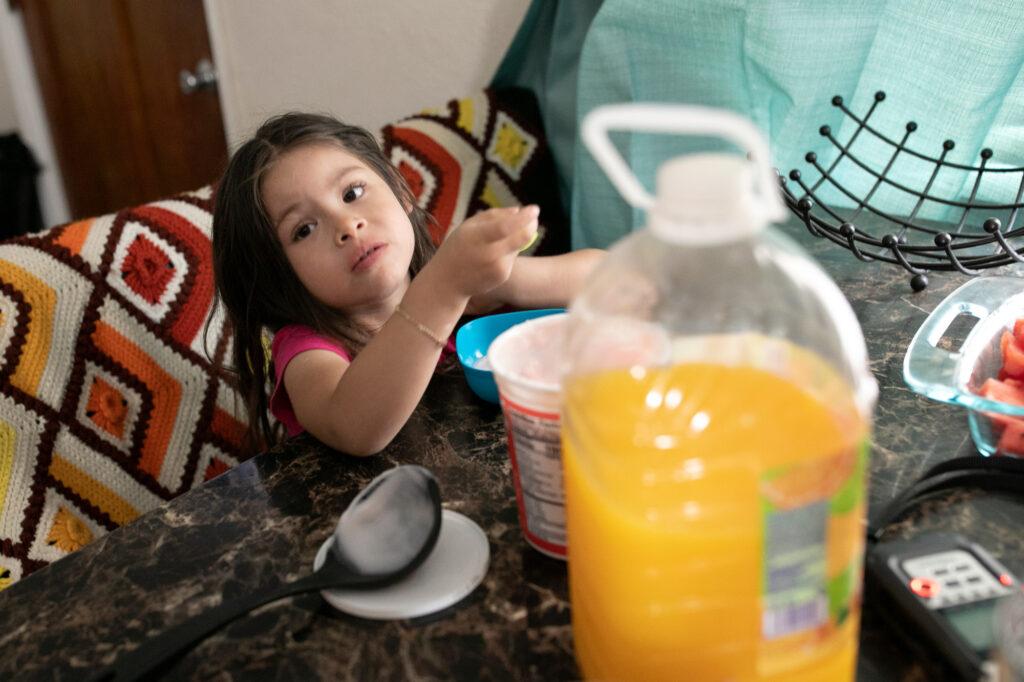
Kneich said this fund came about after conversations with undocumented immigrants at the beginning of the pandemic. She learned how getting laid off, paired with being ineligible for federal assistance, was causing intense stress throughout entire immigrant families.
“It begins first with seeing everybody in your village even when they sometimes have had reason to be less visible, to step forward less often and ask for help, to be less willing to go into a government building.”
Nearly 200 donors managed to raise $1.7 million for the fund. In fact, it was initially so large that it was dispersed to folks all around Colorado. But the money pool quickly dried up, and Kneich wants to revitalize it for those who still need help.
For Agustin, her community and family have been vital. And keeping her emotions in check has been important too. She said she used to get so overwhelmed that she’d cry every day. But, not anymore.
“Whenever bad things are happening, I smile. Really. I’m like, come on. Let’s see who’s gonna come out a winner — the bad problems, or me. I take it more as a battle that I’m gonna win,” she said. “Because things are gonna come, like bad things. But I tend to be like ‘Nuh-uh. Not today. Not today.’”
Resources available to undocumented immigrants and refugees in Colorado:
- Colorado Crisis Services
- New Americans Initiative (state workgroup enhancing services to help newcomers integrate)
- Emergency rental assistance
- Emergency Medicaid
- Healthy Families and Workplaces Act
- Public health whistleblower protections
